I can hardly believe that it has been more than a year since I posted on my blog. I have been sharing some things on social media, though, so I hope you are following me there.
We got home from our last RV trip in November 2021 and that is what my last post was about. We haven’t done any more traveling and mom has been pretty involved with the horses. Frankly, that’s OK with me though. I’m getting older and I sure do enjoy my nap time. I’ll be as old as mom soon!
I love the trailer but it puts me in pretty close quarters with Ocean, and, as you may know, I’m not fond of him or any other cat, for that matter. And that brings me to the worst thing that has happened to me during this past year. Back in August, mom volunteered to foster a cat while he recuperated from a leg amputation — and he’s still here!!
In the beginning, he would chase me. I would run and hide under the bed screaming bloody murder. The first time I did that I guess I really scared mom. He hasn’t chased me in a long time but I still scream and hiss and growl if he gets near me.
All this drama got me wondering if it’s unusual for kitties to not like other kitties. Ocean and Echo were best buddies but I just don’t need or want other kitties near me. I wondered if cats are naturally solitary or if it is just me. Mom and I decided to do some research and here’s what we learned.
Why Cats Might be Naturally Solitary Animals
Cats have a reputation for being solitary animals. They often prefer to be alone, and they do not usually form strong social bonds with other cats. This is in contrast to dogs, which are known for being social animals that thrive on the company of others. But why are cats so different from dogs? Why do they prefer to be alone? There are several factors that contribute to cats’ solitary nature.
Evolutionary History
Firstly, cats have evolved to be solitary animals. Unlike dogs, which evolved from wolves and are pack animals, cats evolved from small, solitary hunters. Their ancestors were small predators that hunted alone, and this behavior has been passed down through generations. Even domesticated cats still have these instincts and preferences for hunting and living alone.
Territorial Behavior
Another reason cats are solitary is that they are territorial animals. They mark their territory with urine and scratches, and they can become aggressive towards other cats that enter their territory. This territorial behavior is likely a survival mechanism that helps cats protect their resources, such as food, water, and shelter. By being solitary and territorial, cats can ensure that they have enough resources to survive.
Lack of Socialization
Cats also tend to be less socialized than dogs. Many cats are kept indoors and do not have the opportunity to socialize with other cats or animals. This lack of socialization can make them more anxious and less able to cope with social situations. As a result, they may prefer to be alone rather than interacting with other cats.
Prey Drive
Cats are also driven by their prey drive. They are natural hunters, and their instincts tell them to be cautious and independent. This drive to hunt and capture prey can make cats less interested in socializing with other cats. They may view other cats as competition for resources or prey, and they may prefer to hunt alone rather than in a group.
Personality Differences
Finally, there are individual personality differences that can affect a cat’s preference for social interaction. Some cats are naturally more social than others, and some may prefer the company of humans over other cats. However, even the most social cats are still likely to have periods of solitude, as this is a natural part of their behavior.
I was kind of glad to learn that I’m not that unusual. Even though we don’t have to compete for resources in the house, I can see that behavior in the outdoor cats that come around to bother the feral cats mom feeds. And I definitely prefer mom’s company to any cat! She says I’m an introvert like her.
In conclusion, I can see that cats are solitary animals for a variety of reasons. Our evolutionary history, territorial behavior, lack of socialization, prey drive, and personality differences all contribute to our preference for solitude. While we cats may not be as social as dogs, we still make great pets and companions. As long as we are given plenty of love, attention, and resources, we can be happy and content living alone or with other cats.
Kitty kisses,
Christy Paws








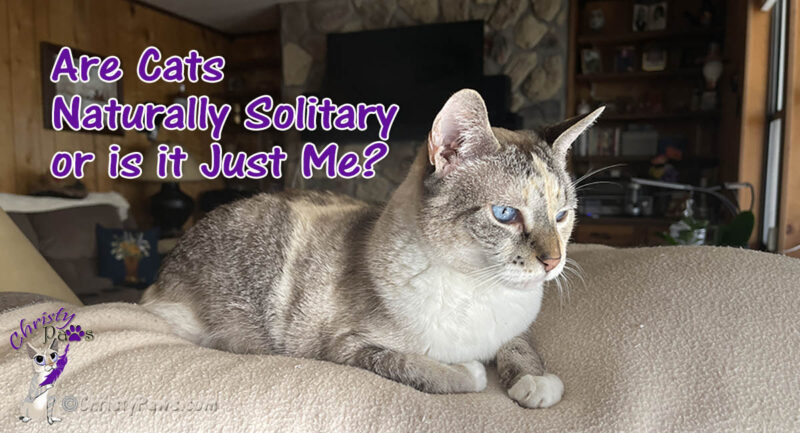
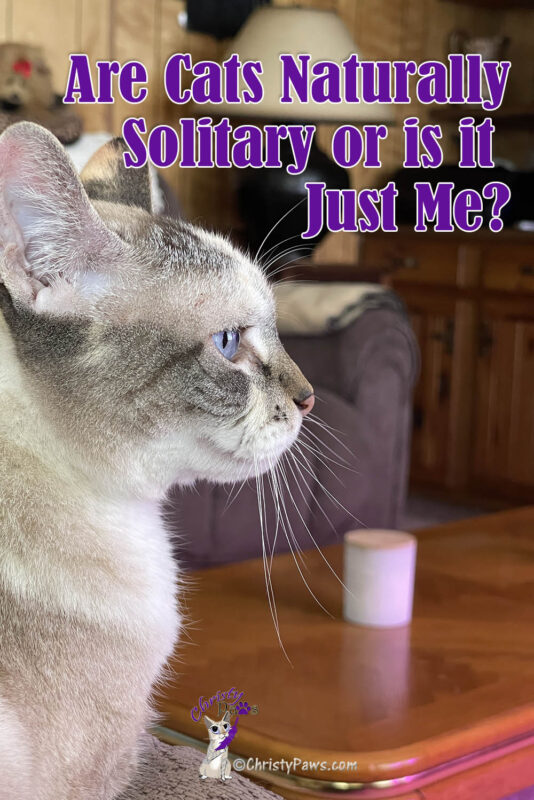
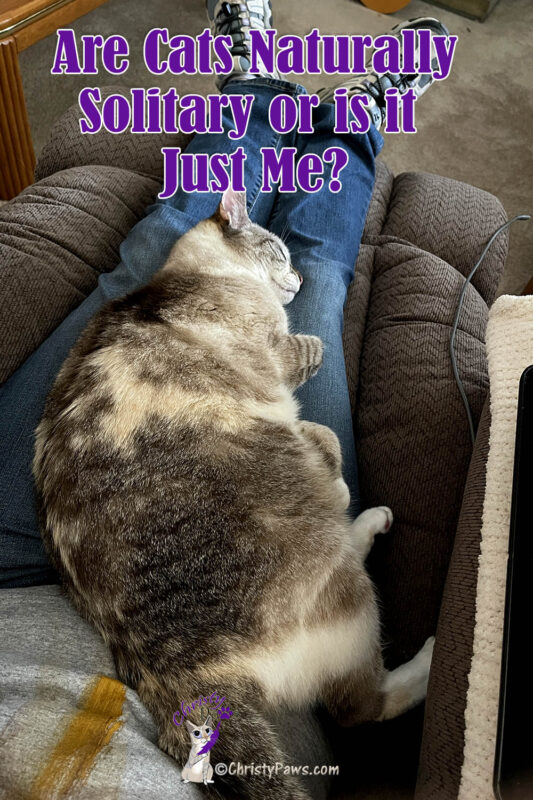
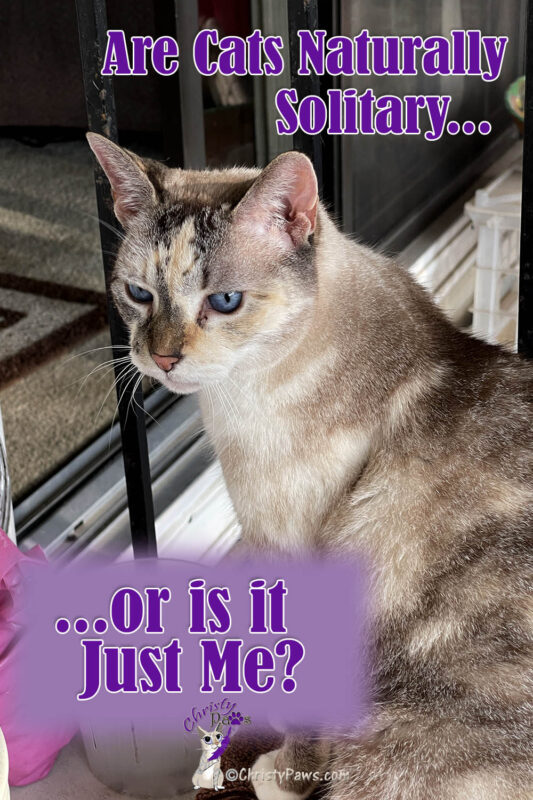






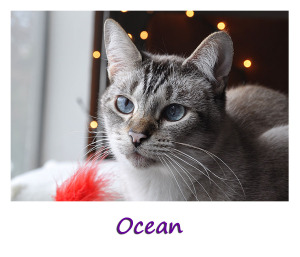
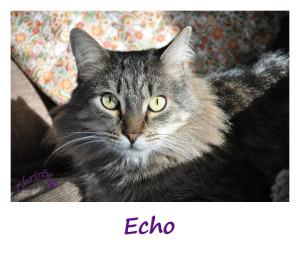




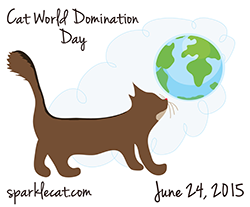

We understand, sweet one, and you are fine just the way you are. Some of the cats at the shelter get along with others, but others are definitely more solitary.
When we still had cats, some were very social with eachother and us, but one almost always preferred to be alone. She hissed and whapped other kitties who dared get too close.
She did sometimes need a human lap:)
That must be hard for you in such a small place. I think just like people, some cats prefer to be alone and others like the groups.. xO
It is good to hear from you again Christy !